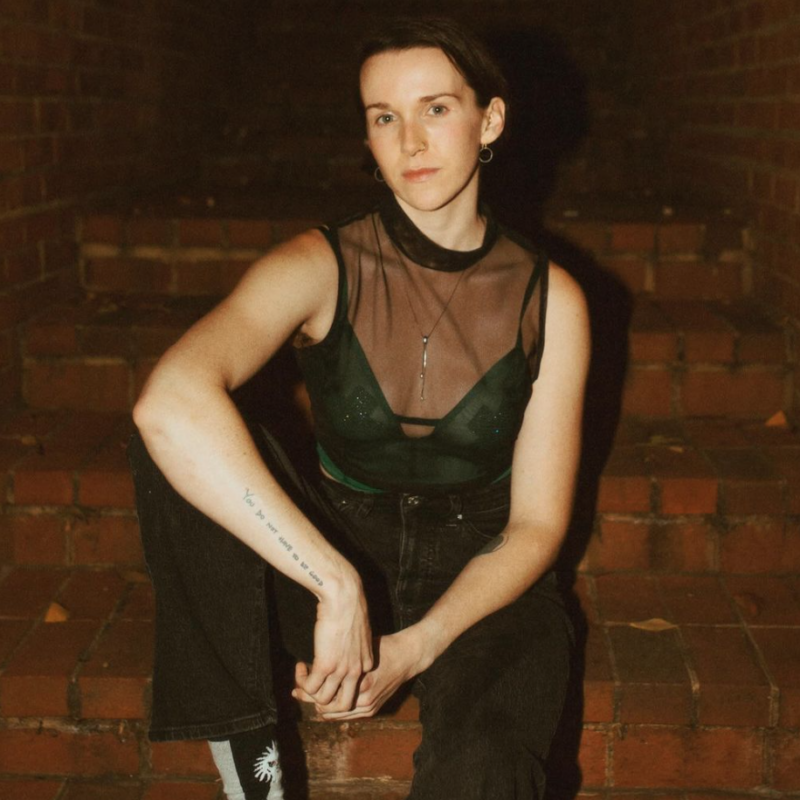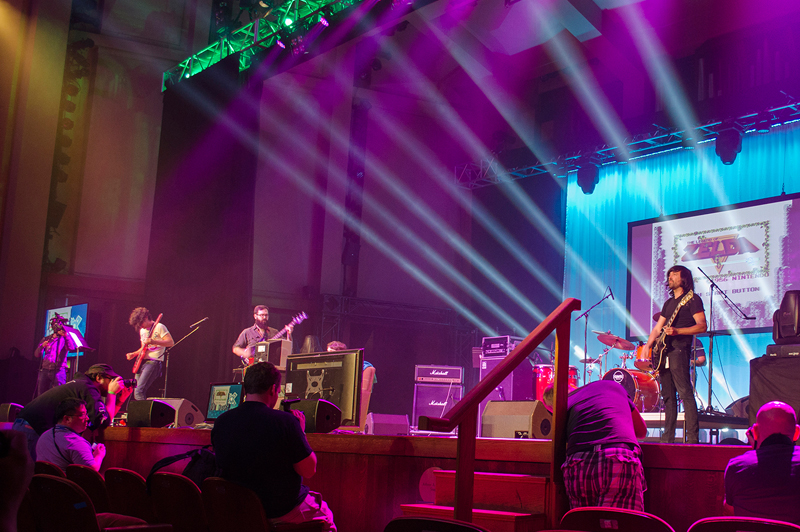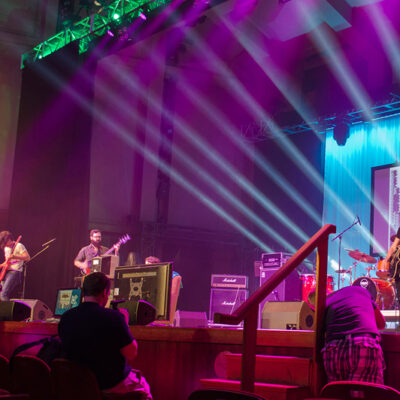First, an important disclaimer from the press materials: “The original 1982 Broadway production of Nine, nominated for 12 Tony Awards and winning five, including Best Musical, was directed by Tommy Tune, choreographed by Thommie Walsh, starred Raúl Juliá with music and lyrics by Maury Yeston and book by Arthur Kopit. The 2003 Broadway revival of Nine received eight Tony Award nominations and won two including Best Revival of a Musical.”
|
No, it’s not “Lady Marmalade.” Rather, Fergie and a few other femmes play the muses to Daniel Day-Lewis’ tormented filmmaker in Nine. |
I say disclaimer because although those are some impressive credentials, the press materials’ way of rattling them off strikes me as a tad defensive. I say defensive because this new movie of Nine, in which Oscar-nominated Chicago director Rob Marshall marshals Daniel Day-Lewis, Sophia Loren, Judi Dench, Nicole Kidman, Penelope Cruz, Marion Cotillard, Kate Hudson and Fergie in a sleek, showbiz-adoring song-and-dance spectacular, already has some impressive credentials of its own.
So, if you absolutely must do a musical movie remake of Federico Fellini’s 1963 cinema masterpiece 8 1/2, it doesn’t hurt to have a pedigree. The problem is that you absolutely mustn’t do a musical movie remake of Federico Fellini’s 1963 cinema masterpiece 8 1/2, and the pedigree doesn’t help, either.
For starters, the obviously very personal original, about a creatively blocked filmmaker grappling with his muses and memories, already was realized as completely as it possibly can be. 8 1/2 isn’t like a play that can be put on again and again, enduring or even thriving from different companies’ interpretations of its archetypal themes.
Even Woody Allen’s Stardust Memories, an elegant homage from 1980, seemed to understand it was skating on thin ice. That film at least had the humility to be a partial parody—as much of itself as of the maestro’s original—and to not be, well, a musical.
Marshall and the gang at least get points for polish and panache. Nine is slick. Certainly the late Anthony Minghella, of The English Patient, and Michael Tolkin, of The Player, knew how to co-write a grandiose moviemaking tribute. Day-Lewis is just fine—consistent, and lighter than you’d expect if you only had There Will Be Blood to go on, although he still files his dispatches from somewhere in silly-accent land. After just a few minutes of that cartoony Italianate English, his breaking into song becomes a suspenseless foregone conclusion; the real question is when he’ll start flipping pizzas.
Cotillard, as the filmmaker’s wounded wife, outperforms most of her cast-mates simply by daring subtlety. Cruz, as his mistress, is another matter, but it’s not really her fault. That hot-mama-in-lingerie-show-stopper aesthetic seems forced: It’s shorthand now, a falsification of sexuality so theatrical that it becomes strangely chaste and servile.
One or two of Nine’s big numbers do linger in the mind, choreographically, but the tunes themselves evaporate from memory almost instantly. Give Nino Rota’s score for 8 1/2 even just a few wordless bars, on the other hand, and it’ll seem as immortal as ever.
So there it is. Fellini’s film was brilliant, organic, authentic. Marshall’s is clever, synthetic, ungenuine. The former begins with pure cinema, one of the greatest movie openings ever. The latter starts with a scene of a press conference, disclaiming again, perhaps, that that’s all it really is, anyway.






